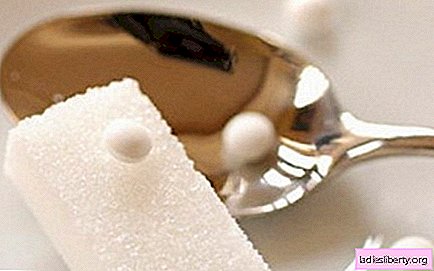
Holidays December 19
St. Nicholas Day
Saint Nicholas, or as the Orthodox call it, Nikolai Ugodnik was born at the end of the 2nd century A.D., on the territory of modern Turkey, in the city of Patara in the family of wealthy parents. From childhood, he showed deep religiosity, zeal, and obedience. Neither day nor night did Nikolai stop his ministry to the Lord. After the death of his parents, Nikolai inherited a great fortune, but distributed it to the poor and afflicted. Then begins the long journey of Nicholas as a clergyman and fighter for the rights of Christians. During his lifetime, the saint became famous for his miracles. Once traveling by sea, Nikolai witnessed the death of a sailor who fell from the mast of the ship onto the deck, Nikolai appealed to God to save the dead, and a miracle happened, the sailor was resurrected. More than once he had to save the sailors. Therefore, from ancient times he was considered the patron saint of sailors. The saint pacified the warring peoples, saved the illegally convicted and saved from sudden and vain death. After the death of Nicholas, his remains were subjected to abuse and plunder, however, some of the relics still managed to be preserved. Now they rest in Bari in the Basilica of St. Nicholas. Interestingly, the event of the transfer and reburial of the relics was accompanied by miracles of healing and enlightenment. In the Orthodox world, Nicholas the Wonderworker, a highly revered saint, occupies a special position in the church hierarchy.
International Day of Poor Aid
December 19, the world celebrates the Day of Help to the Poor. There are nearly two billion people on earth living below or near the poverty line. The countries of Africa and Southeast Asia are most affected by the poverty. Countries included in the "halo" of poverty are weak, economically and politically, state entities. The reason for the poverty of many countries of the "third world" are deep corruption, a poorly educated population, religious and social remnants. The day of assistance to the poor in different countries of the world was established by the United Nations. This international organization also established poverty criteria: lack of permanent housing, work, access to health care and education, lack of food. The UN has developed dozens of interstate poverty alleviation programs all over the world, but despite the ongoing activities, the level of poverty in the world is growing steadily.
Bar Day of Ukraine
Every year on December 19, Ukraine marks the day of lawyer, the holiday was established by President Leonid Kuchma on December 2, 2002. The date of December 19 was chosen by the President on the basis of the "Law of Ukraine on the Bar" adopted by the Supreme Council of Ukraine - December 19, 1992. After the collapse of the USSR and the acquisition of sovereignty by Ukraine, the young state was faced with the problem of the absence of a stable and modern legislative base that would clearly regulate all areas of the state’s activity. The adoption of the "Law on the Bar" made a significant contribution to the development of the judicial system in Ukraine. And the establishment of a holiday for the profession of a lawyer, which is very important in the judicial system, shows how much attention the government pays to the cause of protecting the freedoms and rights of citizens of the state.
UN South-South Cooperation Day
The UN South-South program is a kind of memorandum between the III world countries (developing), aimed at optimizing economic and social cooperation between these states. The document was approved on December 19, 2004 in Buenos Aires, the capital of Argentina. The resolution of the document focuses on the special responsibility of the countries participating in the South-South agreement in the implementation of the programs of the agreement, control of financial flows within the framework of the document, etc. With this pact, the world community in no case turns its back on developing countries, it makes an attempt to unite states that are similar in their socio-economic development and stimulate the leadership of these countries to jointly overcome painful economic and political problems. For its part, the world community and the UN in particular, will maintain inseparable control over countries that have committed themselves to strictly comply with the document adopted for implementation.
International Supply Day
On this day, many countries celebrate a wonderful holiday - the day of the procurement. The symbol of the holiday is the image of a goldfish and this is no accident. The founders of the holiday, by analogy with the tale of Pushkin A.S. drew peculiar allegorical parallels between the symbols of the holiday and the character of the fairy tale. After all, what we will have dinner for today, what we will dress tomorrow, going to visit, and finally what we will go to work on depends on the supplying employee. Just as in the tale of the great poet, where a goldfish could fulfill and get anything, so the supply worker should act in his own field. The holiday was established on December 19, but in many countries it is celebrated on December 20.
December 19 on the folk calendar
Nikola Winter
Nicola is the patron saint of tillage and cattle breeding, the owner of earthly waters. This day has always been greeted with pies. In antiquity, it was from this day on that the matchmaking began: “Choose a matchmaker, not a bride.” Young people prepared for winter gatherings. The opening of winter fairs and bazaars began: "Nikolsky bargaining for all the decree." Frost began on Nicola, people said: "Before Nicola, dumb winters are Nicoli." Everyone remembered that winter does not live without three winters and that winter should be praised after St. Nicholas’s day. If winter was delayed on Nicola, it was a sign that all winter would be dissolute, and frosts would not come soon. If this day leaves a trail in the snow, there will be no road until Christmas. Kohl thaw on Nicola, it was a hasty winter prank. People noticed that if it rains that day, there will be a large and successful harvest for winter crops. A clear and frosty day was considered to be a rich harvest. It was said that if Nikola was frost before, then early barley should be sown, and if later than that day, then late should be sown. Frost appeared in front of Nikola, talking about good oats.
Historical events of December 19
December 19, 1965 election of Charles de Gaulle as President of France
On December 19, 1965, the French people elected the prominent statesman, General de Gaulle, as President for the second time. The elections were held in the midst of a socio-economic crisis and the relative decline in popularity of the head of state. De Gaulle hoped to win immediately in the first round, but the unstable situation in the country and a significant drop in the rating violated his plans. His main rival in the presidential race was the future president, François Mitterrand. De Gaulle was in a state of extreme nervous tension, only the results of the second round brought him relief. The general surpassed Mitterrand by 9%, the election results were as follows: Charles de Gaulle 54%, Francois Mitterrand 45%. However, de Gaulle's second term was his end to a political career. The unsuccessful reforms of the Pompidou cabinet, the government’s monopolization of the media, and arms buildup led to a noticeable decline in the standard of living of the population and, naturally, to popular discontent. As a result of the May rebellions of 1968, which began with a riot of students and ended with a nationwide protest, President de Gaulle was forced to resign.
December 19, 1946 The beginning of the French war in Indochina
December 19, 1946 is considered the start date of the military conflict in Indochina. The war divided Vietnam into two parts, destroyed the entire socio-economic infrastructure of the country, and killed thousands of lives. At the time of the conflict, Vietnam belonged to France as a colony, but the colonial forces in the country were not large. Indeed, only that World War II ended and the French Republic left it formally as a losing and very weakened side, and therefore could not contain significant military forces in the colony. The Vietnamese communists took advantage of this. Their sabotage actions against the French troops and laid the foundation for a bloody conflict, which lasted until 1954. During the hostilities, French troops used prohibited means of war: napalm, chemical bombs, and bacteriological weapons. However, the French failed to break the resistance of the Vietnamese patriots and in 1954, having lost the war, they left Vietnam.
December 19, 1154 years in Westminster Abbey crowned King Henry II
In an atmosphere of long and heavy feud, he was crowned Henry II, great-grandson of William the Conqueror, founder of the Plantagenet dynasty. In addition to the English crown, he inherited from his parents extensive possessions in the west of France. Henry turned out to be a talented statesman; he ruled the country for 35 years. For this long time he managed to restore a relative order in the country. He managed to put an end to the unpunished arbitrariness of the barons, who, by that time, had separated from the royal power, had ceased to pay taxes, and some began to declare that the British crown was subordinated. The king revived the royal army, returned part of the lost territories, introduced a new judicial system. Towards the end of Henry's reign, feuds began in his family, and the future king of England, Richard, took a leading position in them.
December 19, 1863 Englishman Frederick Walton patented linoleum
The linoleum prototype was a linen cloth impregnated with oil, such a coating was already made in 1627. In 1763, the English inventor Smith was given a patent for the manufacture of the original flooring and issued instructions for the invention, describing in detail the production process. Smith suggested applying hot resin gum, linseed oil and beeswax to linen. Later in the mixture - impregnation they began to add ground cork, this product was more like modern linoleum, but it was called camptulikon. December 19, 1863 Briton Walton received a license for advanced manufacturing technology of the so-called linoxin. Three years later, the industrial production of this invention began, which spread throughout the world and now remains a very popular floor covering.
December 19, 1939 the legendary T-34 tank was placed at the disposal of the Soviet army.
The tank was created by the Kharkov Design Bureau, from 1942 to 1945, began to be mass-produced at the factories of the Urals and Siberia. The tank has been modified many times, its latest modifications are now in service in some countries of the Third World. The appearance of the T - 34 on the fronts of World War II turned the tide of the war on the side of the USSR.
By its technical, combat and ballistic qualities, the tank is recognized as one of the best medium tanks for the entire era of the Second World War. Thanks to its military and heroic history, the T - 34 became a symbol of victory, the personification of the heroic struggle of the Soviet people against the German invaders.
December 19, 1991 awarded the last in the history of the Soviet Union Order of the Red Star
The Order was established by a decision of the Presidium of the Central Executive Committee of the USSR on 04/06/1930, for great and special services to the Soviet homeland, in wartime and peacetime, in ensuring the security of the USSR. The Order of the Red Star is awarded to:
Military personnel of all military branches, KGB officers, employees of the Ministry of Internal Affairs
Military units, warships, associations, enterprises, organizations and institutions
For special courage, military courage, competent and successful leadership of military operations
Units and formations of the army that caused significant damage to the enemy
For merits in the protection and defense of the state border of the USSR
For special courage and fearlessness shown in a combat situation involving a danger to life
For completing top secret missions and other feats committed in peacetime
For services in improving and strengthening the defense capability of the homeland
For the development of military science and technology
By 1995, the Order of the Red Star was awarded to 3.876.740 people, the last awarded in the Soviet period were: Permyakov Gennady Anatolyevich, Petrenko Alexander Pavlovich, Shamanov Vladimir Mikhailovich, Lyakh Vladimir Viktorovich
December 19 were born:
Leonid Brezhnev (1906-1982), great statesman and party leader
Born in the city of Dneprodzerzhinsk, studied at a land survey and land reclamation school in the city of Kursk. In 1931, Brezhnev joined the party. Only 7 years later, he assumed the post of secretary of the regional committee. When the war broke out, Brezhnev served as deputy head of the Southern Front, served as a colonel, and soon became a major general. At the end of the war, Brezhnev’s political career rapidly went up. He served as secretary of the regional committee of Ukraine, after Moldova. In 1952, Leonid became a member of the Central Committee, and the Presidium of the Central Committee. After the death of Stalin, Khrushchev proposed sending him to the post of secretary of the Communist Party of Kazakhstan. Soon Brezhnev returned to the Central Committee, and after twelve months he became an honorary member of the Presidium.
In 1960, in his biography, Leonid Ilyich took the next prestigious post-chairman of the Presidium. Brezhnev took part in the conspiracy to remove Khrushchev, and after that he took the post of head of the party. While he was in charge, the party structure replaced the state one.
Galina Volchek (1933), theater director, actress
Cinema burst into the life of Galina from childhood, because the girl was born in the family of a filmmaker. After graduation, Galina Borisovna became the creator of the Studio of young actors, which was later called "Contemporary". The entire creative biography of the actress is closely connected with this theater. A few years after the creation of this theater, Volchik became the main director there, and then its director. Starting her career as an actress and achieving incredible success in the acting field, Volchek began to direct. Her first performance “Two on a Swing” was a stunning success, and remained in the theater repertoire for more than 30 years, because it was very fond of the public. In any director’s work, Galina has a certain psychologism, she knows how to connect the brightest individuals, always relies on acting talent. In all his works, he remains faithful to his own style, but is in a constant search for neoplasms, inviting directors from various theater schools to work, always expanding his repertoire. Galina was engaged in theatrical pedagogy and abroad. This woman has a strong character and a very colorful appearance, so she was often invited to act in films. The playing heroines Volchik endowed with her character traits. Now Galina Borisovna Volchek does not act in films at all, and practically does not play in the theater. She went headlong into the directorial profession. Her career includes more than 30 performances, among them Russian and world classics, wonderful works by different authors: contemporary, domestic and foreign.
Edith Piaf (1915-1963), French actress and singer
She was born in an aristocratic family, but despite this the girl had a difficult childhood. Her mother had an unsuccessful career as an actress, and immediately after giving birth to Edith, she gave her up to raising her mother. Grandmother’s upbringing was terrible, she was very ill with the child. At this time, Father Edith served at the front, when he found out how ill-treated his child was, he decided to send the girl to raise his mother.At that moment, it turned out that Edith was completely blind. Having lost all hope of recovery, the grandmother took the girl to the holy healer Teresa, and a miracle happened - Edith received sight. It happened at the age of five. When the girl was 8 years old, her father took her to Paris, where they worked together in different squares - Edith sang, and her father showed various acrobatic tricks. At age 15, Edith left home because of a quarrel with her father. She earned a living - she sang on the streets, but one day she was hired by a local cabaret. There she met her future husband, and a year later gave birth to his daughter. This marriage was unsuccessful. Edith fed the whole family and was still engaged in a daughter. Soon, daughter Edith became seriously ill. After spending several days in the hospital with the baby, Edith fell ill, but recovered, and her daughter, unfortunately, died. Young Edith was then only twenty-two years old. When Edith had this black streak in her life, and it seemed that no light was visible, she met Raymond Asso, it was he who “gave birth” to the famous and great Edith Piaf. Thanks to him, Edith performed for the first time in the most famous music hall in Paris. This performance was considered a dedication to the profession. Unfortunately, Edith got into two car accidents at once, she had multiple fractures, the pain was unbearable, and in order to somehow relieve her, she was pricked with morphine, because of this, Edith became drug addicted. Edith Piaf starred in a historical film. Four years later she performed at the Olympia Concert Hall, the success of this performance was overwhelming. Then she went on a tour of America, which lasted eleven months. Edith's schedule was very full of performances and a tour, and her health could not withstand such physical, and most importantly emotional stresses. At forty-six, the singer was diagnosed with liver cancer. Despite this, Edith performed and sang. At her last performance, the audience stood up and applauded the great Edith for five minutes. October 10, 1963 the great singer was gone.
Albert Abraham Michelson (1852-1931), American physicist, Nobel laureate
This outstanding man was born in the family of a merchant in Prussia. In early childhood, the Albert family emigrated to America, where the guy began his studies at the Naval Academy in the United States. At that time he was already interested in physics and the measurement of the speed of light. On the optimization of the measurement method, the scientist began working in 1877. Having achieved the first results, Albert did not stop and continued to look for a whiter perfect technique. Over the course of his practice, he managed to make 36 different methods with which you can measure the speed of light. In his methods he used mirrors and electro-optics. In 1883, the scientist received the title of professor, and he was invited to the school of applied sciences. In this segment of his life, he thoroughly engaged in the improvement of the interferometer, which in the future was named in his honor. The scientist taught at Clark University and the University of Chicago. This scientist owns the famous experiment, which determines the speed of the Earth relative to the ether. Albert also measured the size of stars, determined the diameter of the Betelgeuse star using an interferometer. Albert Abraham was the first American to receive the Nobel Prize in Physics.
Birthday on December 19:
Maxim, Nikolay.











